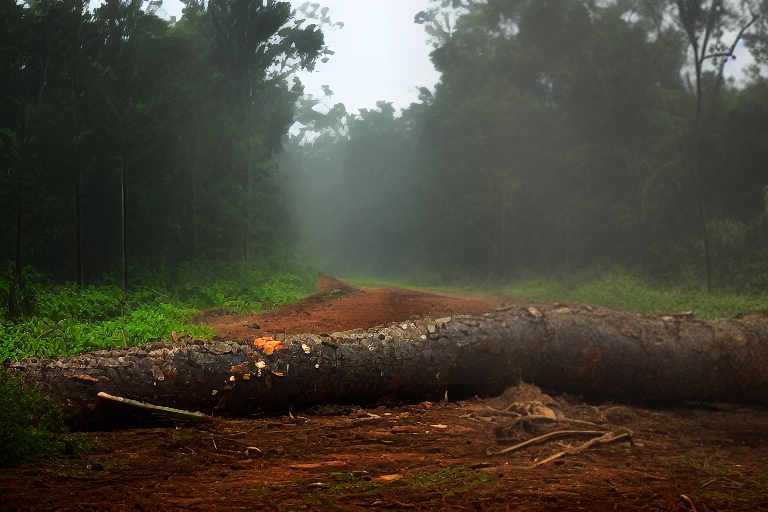In the Amazon rainforest, a new study published in Nature brings alarming news. It warns that the forest is under threat from wildfires, deforestation, and global warming. Lead researcher Bernardo Flores says if we don't act soon, a big chunk of the Amazon could turn into something else by 2050. This study is a wake-up call for leaders, scientists, and communities worldwide to step up and protect the Amazon for the future. It's a race against time to save this crucial ecosystem from irreversible damage.
Original article written by : Evan Bush
The Amazon rainforest is facing serious threats from wildfires, deforestation, and global warming, as outlined in a recent study in Nature. Lead researcher Bernardo Flores warns that without immediate action, between 10% and 47% of the rainforest could be lost by 2050 due to a combination of factors like climate change and land use changes. This highlights the urgent need for comprehensive measures to protect one of the Earth's most crucial ecosystems. The study's findings should prompt policymakers, scientists, and the global community to prioritize conservation efforts and sustainable practices to safeguard the Amazon for future generations.
The Amazon is a vital hub of biodiversity and serves as a significant carbon sink, absorbing large amounts of carbon dioxide. Any significant disruption to its delicate balance could exacerbate climate change and have severe consequences for local communities, especially Indigenous groups who rely on its resources. Addressing these threats within the next three decades is critical to avoid irreparable damage, necessitating immediate action to combat deforestation, reduce greenhouse gas emissions, and promote sustainable land management practices. Additionally, initiatives to protect Indigenous land rights and empower local communities are essential for preserving the Amazon's ecological integrity and ensuring its continued role in regulating the global climate and preserving biodiversity.
The study underscores the complex interplay of factors such as deforestation, fires, droughts, and climate change, which pose serious risks to the Amazon's water and carbon cycles. Limiting global warming to 1.5 degrees Celsius, as outlined in the Paris climate agreement, is crucial to prevent irreversible damage and maintain the Amazon's function as a carbon sink. Targeted interventions are needed to address specific drivers of ecosystem degradation and protect vulnerable regions within the Amazon basin. By taking a holistic approach that integrates scientific research, policy development, and community engagement, stakeholders can work together to preserve the Amazon rainforest as a global treasure and ensure its resilience in the face of mounting environmental challenges.

